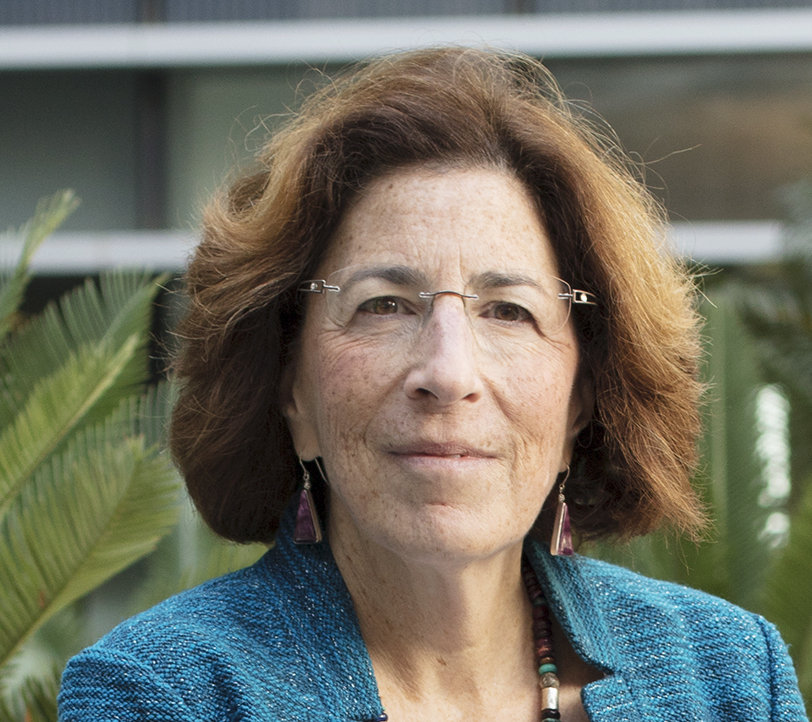Biological Age, Not Birthdate May Reveal Healthy Longevity
Published Date
By:
- Yadira Galindo
Share This:
Article Content
A first-of-its-kind study of 1,813 older women suggests that the accelerated biological aging of the body — epigenetic age acceleration specifically — is associated with lower odds of living to be 90 years old and also being physically mobile and having intact mental function.
In the July 27, 2022 online edition of JAMA Network Open, a multi-institutional team of researchers led by the Herbert Wertheim School of Public Health and Human Longevity Science at University of California San Diego reported that epigenetic age acceleration could be used as a biomarker for healthy longevity and to estimate functional and cognitive aging.
“Older people know well that age is just a number that may not be indicative of their health status. What if we had a way to measure how fast we were aging that could predict our odds of living a long and healthy life? In aging research, we call this an individual’s healthspan,” said principal investigator Andrea LaCroix, Ph.D., M.P.H., Distinguished Professor at the Herbert Wertheim School of Public Health and Human Longevity Science.

Andrea LaCroix, Ph.D., M.P.H., Distinguished Professor at the Herbert Wertheim School of Public Health and Human Longevity Science
Chronological age is based on a person’s birthdate. Epigenetic age refers to the biological age of a person’s cells, tissues and organ systems. If an individual’s epigenetic age is greater than their chronological age, the person is undergoing epigenetic age acceleration, which is associated with higher risk of cancer, cardiovascular disease, Parkinson’s disease and other diseases.
Based on four different epigenetic “clocks” that measure biological aging, every five to eight years of epigenetic age acceleration was associated with 20% to 32% lower odds of living to age 90 with intact mobility and cognitive function.
“Healthspan is important because the number of individuals who will live to be 90 years and older will quadruple from 1.9 million in 2016 to 7.6 million in 2050 in the United States alone,” said LaCroix.
As part of the prospective study, the team analyzed data on physical and cognitive status from 1,813 women who participated in the Women’s Health Initiative, a long-term national health study funded by the National Heart, Lung, and Blood Institute that began in 1993. The median age of death among Women’s Health Initiative participants was 90 years.
Among this cohort, 464 women survived to the age of 90 with intact mobility and cognitive functioning, 420 lived to 90 but without intact mobility and cognitive functioning, and 929 women who died before reaching 90.
Study participants were 70 to 72 years old at baseline and were followed until at least age 90 or the time of their deaths. The associations of the epigenetic age acceleration clocks with healthy longevity were found to be independent of other characteristics more common among the long-lived women with intact mobility and memory compared to those who did not survive to age 90 including being white, having no or fewer chronic conditions at baseline, having higher education, not smoking and walking multiple times per week.

Purva Jain, Ph.D., first author
“Prior studies have shown that epigenetic age acceleration is associated with increased risk of death, and a few studies observed that slower age acceleration occurs among long-lived individuals. But this is the first study to prospectively examine the relationship between slower age acceleration and living to age 90 with preserved mobility and memory,” said first author Purva Jain, Ph.D., who completed this work as part of her doctoral dissertation at UC San Diego.
Jain graduated from the epidemiology track of the Herbert Wertheim School of Public Health’s Joint Doctoral Program in Public Health in December 2021.
“Furthermore, our study suggests we can use epigenetic age acceleration to estimate the risk of an individual not attaining healthy longevity, which could lead to future public health interventions to counteract poor health outcomes among older populations,” said Jain.
Co-authors include: Brian Chen and John Alcaraz of UC San Diego; Alexandra Binder of UCLA and University of Hawaii Cancer Center; Humberto Parada and Linda C. Gallo of San Diego State University; Steve Horvath of UCLA; Parveen Bhatti of Cancer Control Research, BC Cancer; Eric A. Whitsel, James D. Stewart and Yun Li of University of North Carolina at Chapel Hill; Kristina Jordahl of University of Washington; Andrea A. Baccarelli of Columbia University; Lifang Hou of Northwestern University; and Jamie N. Justice of Wake Forest School of Medicine.
This research was funded, in part, by the National Institutes of Health: the National Heart, Lung, and Blood Institute (HHSN268201600018C, HHSN268201600001C, HHSN268201600002C, HHSN268201600003C, HHSN268201600004C, HHSN268201300006C), the National Institute of Aging (T32 AG058529), National Institute of Environmental Health Sciences (R01 ES020836), and the National Cancer Institute (K01 CA234317), as well as the American Cancer Society (125299-RSG-13-100-01CCE), San Diego State University (U54 CA132384, U54 CA132379), and UC San Diego (P30AG059299).
Disclosures: Binder reported receiving grants from the National Cancer Institute during the conduct of the study and scientific advisory fees from Epigenetic Clock Development Foundation. Chen reported being a full-time employee and having a patent pending for Foxo Technologies outside the submitted work and owning common stock in Illumina. Horvath reported receiving grants from the National Institute of Aging during the conduct of the study, receiving personal fees from Epigenetic Clock Development Foundation outside the submitted work, and having a patent pending for Epigenetic Clock Development Foundation. Jordahl reported receiving grants from the National Cancer Institute during the conduct of the study and personal fees from Bristol Myers Squibb outside the submitted work.
Share This:
You May Also Like
Stay in the Know
Keep up with all the latest from UC San Diego. Subscribe to the newsletter today.



